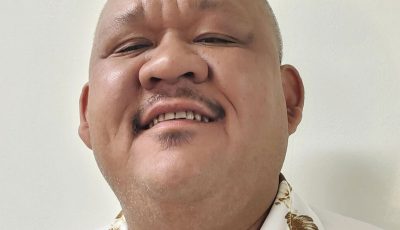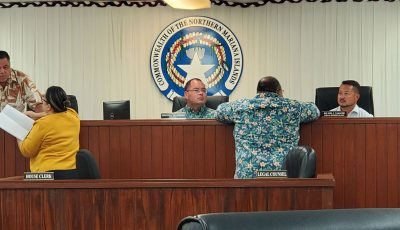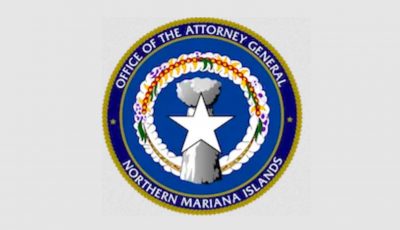A succession crisis in our midst
It is often a clear and workable doctrine in constitutional law that the provision of a constitution that is unconstitutional would not affect other parts or provision that are deemed constitutional.
In Section 7 of Article lll of the CNMI Constitution this is particularly obvious even if you are not a lawyer. The second sentence states, “If the offices of governor and lieutenant governor are both vacant, the president of the Senate shall become acting governor and the speaker of the House shall become acting lieutenant governor.” The president of the Senate and the speaker of the House could not serve as elected officials of the Legislature and serve as acting governor or acting lieutenant governor, respectively, in the Executive Branch. The separation of powers and dual posts prohibition in other sections of the CNMI Constitution make this very clear. Hence, this part of Section 7 of Article lll would have no effect of law.
I don’t think any trained lawyer in the Office of the Attorney General, House and Senate in the Legislature, lieutenant governor’s and governor’s offices, CNMI Election Commission, and all the members of the Legislature would disagree on this. I do urge our elected leaders keep reading the CNMI Constitution because what we have is a line of succession crisis. It is a matter of separation of powers between the Legislature and Executive Branch that give much problems in the present line of succession crisis, hence the situation is a basket case of urgency.
Holding dual posts simultaneously by an elected official of the Legislature as acting governor or acting lieutenant governor is prohibited by statutes and the Constitution. It is constitutional for a person who is properly vetted and who is outside the order of line of succession fill and assume as acting governor or acting lieutenant governor. The OAG and AG could opine to this effect and it would be constitutional. This is not explicitly stated but by implied language, nonetheless, such opinion could stand constitutional challenge. Unfortunately, this by implication is a source of confusion. It requires the OAG and AG, including the lawyers in the House and Senate, offices of the governor and lieutenant governor, and CNMI Election Commission to do something. The Legislature is not immune to all these.
If silence is the favored route by either the OAG and AG or the Legislature, this would turn to be a “namahmahlau” to all these principals, individually and all inclusive. What say you?
Francisco R. Agulto
Kannat Tabla, Saipan



























